Filter
Clear All
Type
Town

Wastewater

Water

Solid waste

Infrastructure

SDG

Urban plan
Showing 53 Results

FOLLOWING THE FLOWS - Tracing the Total Water Flow in Emerging Urban Centres of South Asia
By Anjali
Across South Asia, a vast landscape of growing towns forms the connective tissue between rural hinterlands and metropolitan hubs. These emerging urban centers, often classified as small and medium towns, are where much of the region’s urban future is unfolding. The Following the Flows study, led by BORDA South Asia, examines how water and sanitation systems are shaped and function in such emerging urban centres. Rather than an infrastructure audit, it explores lived realities, mapping the connections, gaps, and everyday practices that define services. Drawing on in-depth interviews with municipal and state officials, water and sanitation experts, GIS mapping, spatial observations, and secondary data from urban local bodies, the study traces water’s journey from source to distribution, collection, treatment, and reuse, supplemented by stories and profile mapping that reveal the layered technical, institutional, and behavioural dynamics of service delivery. Covering emerging urban centres in the hills of Himachal Pradesh, Ladakh, and Nepal; coastal Kerala; Karnataka’s peri-urban belts; and deltaic Bangladesh, the study makes visible where breakdowns occur and why, creating a foundation for governments, development partners, and local institutions to design context-specific, loop-closing, and climate-resilient solutions, ensuring these centres not only grow, but do so sustainably, equitably, and with water security at their core.
Read More →
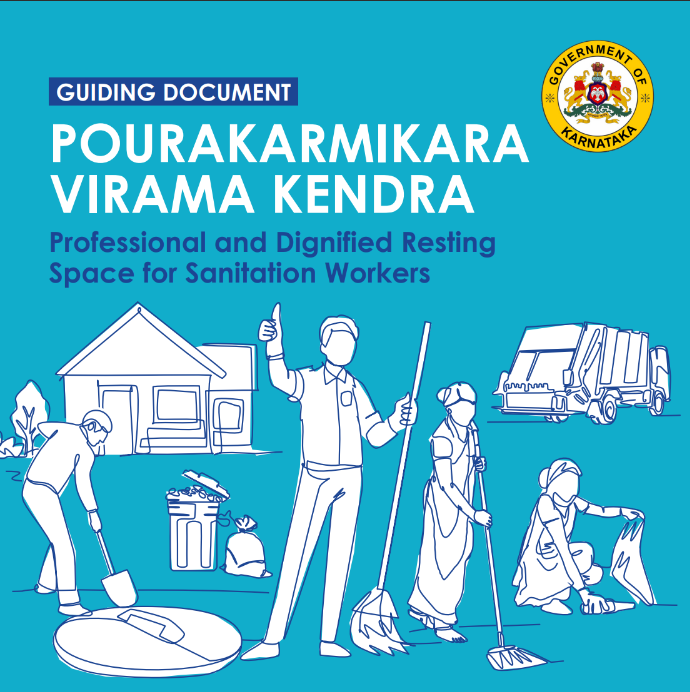
Guiding Document: POURAKARMIKARA VIRAMA KENDRA
By Anjali
This guiding document is designed to support the Urban Local Bodies in India in understanding the step-by-step process for establishing professional and safe resting spaces for sanitation workers. The Pourakarmikara Virama Kendra is a dedicated facility designed to improve the working conditions of sanitation workers, or Pourakarmikas, across Karnataka. These workers often perform their duties in unsafe and unhygienic environments, lacking access to essential amenities such as clean water, restrooms, and changing rooms. To address these challenges, the Urban Development Department has directed all ULBs in the state to establish these facilities. The Virama Kendra provides sanitation workers with essential services aimed at enhancing their safety and dignity at work. Key features of the facility include access to clean drinking water, hygienic toilets, rest areas, and changing rooms where workers can refresh after their physically demanding tasks. By offering these amenities, the Pourakarmikara Virama Kendras help create a more respectful and supportive work environment, contributing to the overall well-being of sanitation workers. This initiative recognizes their critical role in maintaining public health and strives to offer them a dignified and safer workplace.
Read More →
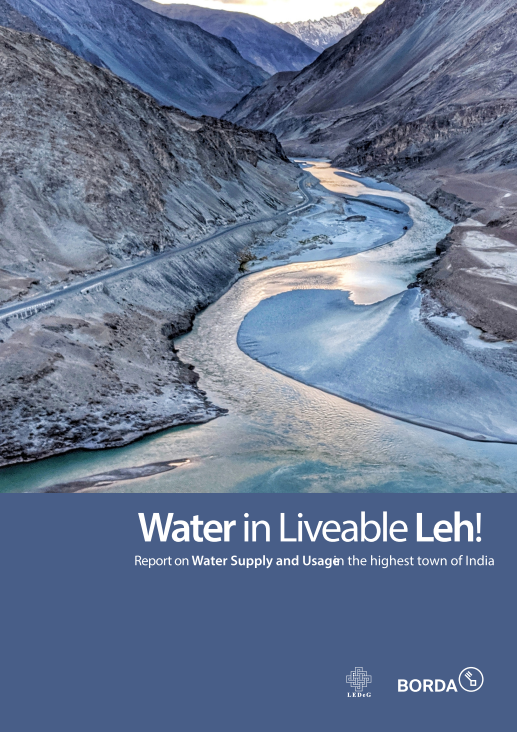
Water in Liveable Leh!
By Anjali
This report describes various aspects of the drinking water supply system for Leh town. Even though water shortage is the leading concern and fear of people, and large water projects are being implemented, there is a general lack of information and clarity about water demand and supply, and management of water systems in Leh. The research team, other stakeholders, and experts, had varied opinions on this topic and also many ideas on how it should be improved or changed, but the purpose of this report is to describe the system as it is. This report is meant to separate facts from fiction and opinions, and therefore, ideas and suggestions for the future have not been reflected in this report. We believe that once a shared factual basis is established across all key stakeholders in this matter, then ideas and opinions can be discussed in a more objective manner, to determine a path to improve water security and sustainability in Leh.
Read More →
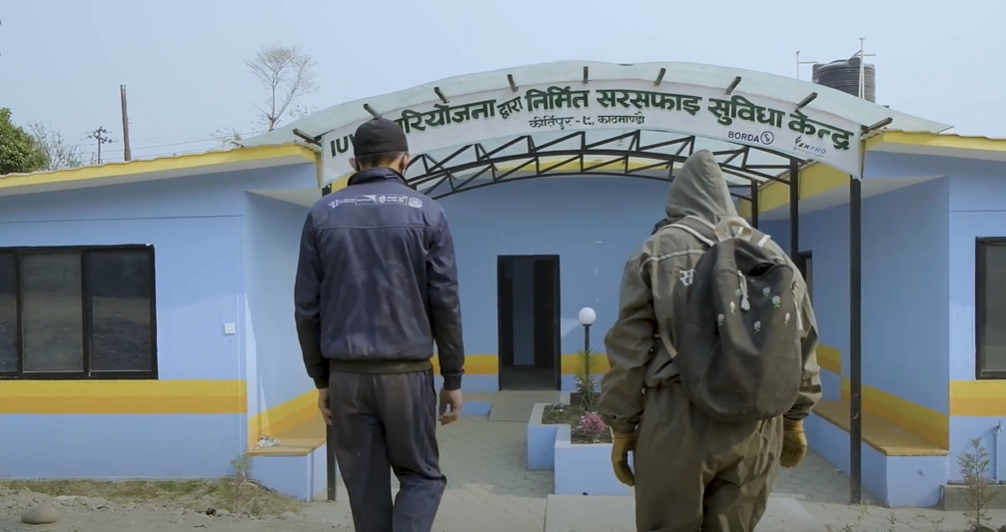
A video on Dignified Work Life - Use of WASH Facility
By Anjali
This video highlights the transformation brought by the newly constructed WASH facility in Kirtipur, developed specifically for the municipality's sanitation workers. It captures the "before and after" conditions, showcasing how the facility has enhanced access to safe water and sanitation, promoting dignity and improved working conditions for these essential workers.
Read More →
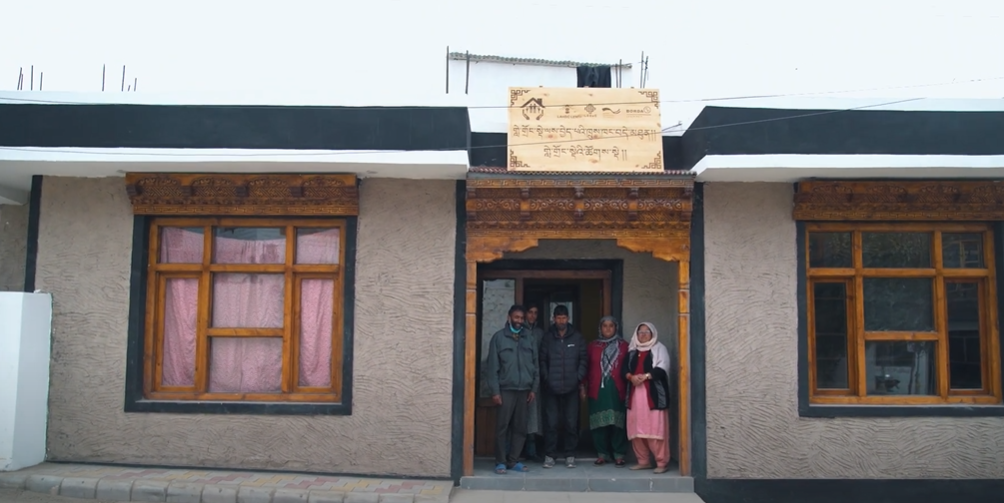
WASH Facility Centre for Sanitation Workers of Leh
By Anjali
Documentation of Leh government's innovative government led intervention - provision of dignified and aspirational working facilities for sanitation workers
Read More →
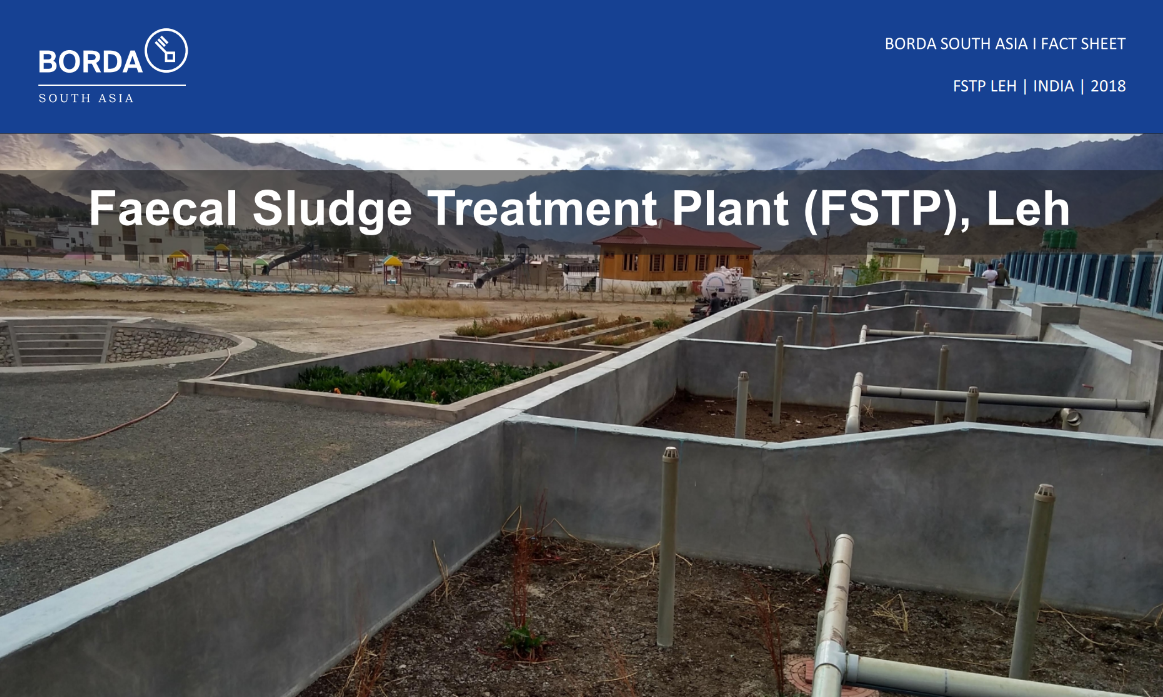
Faecal Sludge Treatment Plant (FSTP) factsheet, Leh
By Anjali
This treatment plant is designed by BORDA and CDD Society and executed by MCLand Blue Water Company, a sanitation providing services company that is providing end-to-end Faecal Sludge Management Services to improve sanitation, health and the environment in Leh and serve as a model to other towns. As most of the septic tanks are poorly designed and the underground water table is high (only 30 feet in some places), in 2017 there was early evidence of water contamination, possibly due to overflowing septic tanks. Borewells are extensively used for drinking water, therefore water pollution can have serious health and economic consequences. Therefore, the Municipal Committee of Leh (MCL) ordered that septic tanks are to be made water tight and mandatorily desludged every year. The town needed a FSTP to safely treat and reuse the sludge. The FSTP must handle both the challenges of high altitude and extreme climatic conditions, as well as highly variable sludge inflow as activities will be minimal in the winter.
Read More →
